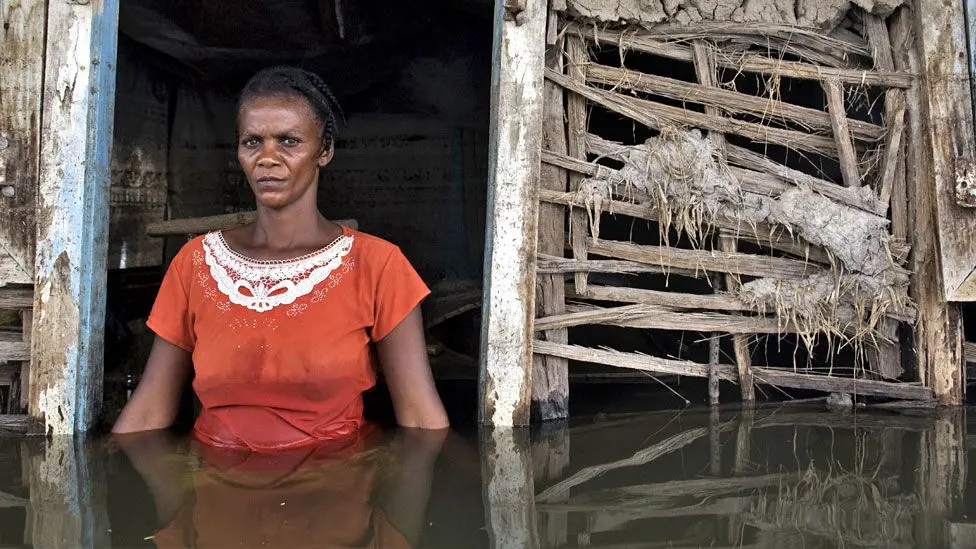The letter calls for two simple things. Both are entirely consistent with religious and moral values.
First, for developed countries to finally make good on their decade-old promise to support the world’s most vulnerable nations in protecting themselves from rising sea levels, droughts, floods, famines, and other devastating climate impacts.
Second, for governments to update their climate commitments not just every five years they do currently, but every year.
Friends, we face enormous dangers ahead, and major governments are simply not taking the situation seriously.
This call for commitment by the world’s most vulnerable nations is morally on-target and as urgent as it gets.
Glasgow Emergency Pact
Subject: Call for a #GlasgowEmergencyPact at COP26
Open letter to heads of delegations of parties to UNFCCC COP26
Six years ago, the world rightfully celebrated the adoption of the Paris Agreement. Though the initial pledges still had us headed for more than 3 degrees of warming by the turn of the century, there was hope: NDCs would be updated with greater ambition every five years, putting us on track to reach the goal of limiting warming to 1.5ºC. The first deadline to submit those new, more ambitious NDCs has come and gone, and it is disheartening to find the gap between target and ambition looming so large still.
In parallel, financial commitments made in Paris remain unmet: the 100 billion USD promised annually for the 2020-2024 period are yet to materialize, leaving nations both most vulnerable to and least responsible for climate change unarmed to face this crisis adequately.
These elements spell out a harsh, cold truth: the Paris Agreement is in peril. Meanwhile, the IPCC 6th Assessment Report published in August of this year presented us with a colder, harsher truth still: we are out of time. Updated projections show that we will reach 1.5ºC of temperature rise in 2030. The consequences of this acceleration of warming are devastating for all. They are especially dire for those countries for which the 1.5ºC goal is a real survival threshold.
With such a background, it is no surprise that COP26 has been so highly anticipated: it is a make-or-break meeting for the future of our planet. COP26 is the opportunity to restore confidence in the Paris Agreement and keep 1.5ºC alive.
We, the signatories, believe that the way to prove the world that international climate change cooperation can live up to its promises is by forging a Glasgow Emergency Pact at COP26.
The Glasgow Emergency Pact, first proposed by the countries of the Climate Vulnerable Forum, is a two-pronged solution to a two-pronged problem. First, on finance: the Pact calls for developed countries to come forward with a Delivery Plan for the 500 billion USD promised for the 2020-2024 period. This Plan will restore confidence in the Paris Agreement and support urgent climate action by developing nations already struggling inside the frontlines of a global climate emergency. Given the extreme negative impacts climate change already has and will continue to have on the world’s most vulnerable, we believe that this finance should be equally balanced between adaptation and mitigation. Finally, it must have independent annual monitoring supported by the UNFCCC secretariat and involving key multilateral financing institutions.
Second, on ambition: the facts laid out above make it clear that we cannot wait until 2025 to review a new round of NDCs, only to find out that they are once again insufficient. We believe that a platform is needed that will encourage all countries, but especially major emitters, to come forward at every single COP with new ambition announcements that exceed their current NDC targets. These additional political commitments could cover both mitigation and adaptation and would be recorded using a simple template. Such a Climate Emergency Ambition Platform for 2030 would foster continuous ambition raising and progressively build towards much stronger NDC submissions at the end of the next 5-year cycle. These platforms could also serve to present new ambition on adaptation, which must also constantly be strengthened to keep pace with the fast-developing global climate crisis.
We therefore urge you to forge this Glasgow Emergency Pact as a key outcome of COP26, embedding it centrally within decision 1/CP.26 of the Glasgow conference. Restoring confidence in finance delivery and providing the appropriate platform for annual ambition raising is how you will ensure COP26 succeeds. This success is not only a matter of credibility for the international climate negotiations: it is a matter of survival for our most vulnerable communities and individuals.
Signed,
Organizations:
You may sign this pact here: (Google docs)
Source
Image Source
Tags: Climate Vulnerable Forum, The Glasgow Emergency Pact


